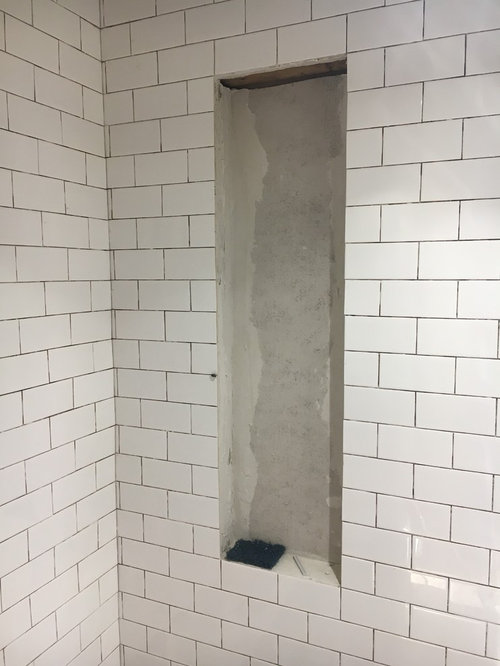How To Lay Tile On Uneven Backer Board Wall

Proper way to install backer board in tub area no matter what the board is made of it should not sit on top of the tub flange.
How to lay tile on uneven backer board wall. Here the trim wasn t quite thick enough to overhang the tile below so we set the trim over a strip of 1 4 in. Here s how to choose the best tile backer board for your project. If so adjust your layout to have wider tile on the sides. Cement board commonly sold under trade names such as durock hardiebacker and wonderboard is now the standard underlayment used for ceramic porcelain or stone tile laid with thinset mortar adhesive cement board is used for most floor tile and has all but replaced plywood and drywall backer materials for wall tile applications in wet areas like showers and tub surrounds.
Nail shims to the two by four so that the front surface of the backer board is even with the front surface of the drywall. Score the board with a utility knife then cut it using a jig saw with a carbide blade. Center a tile horizontally along the length of the wall and do a quick dry fit to make sure you don t have a lot of tiny tile at the end of the rows. If needed cut the backerboard to fit in small spaces or around obstructions.
Keep in mind that inch backer board is frequently less than inch thick. Doesn t deteriorate when wet. Repair uneven seams with mortar. Otherwise use latex or acrylic modified thin set mortar.
Snap a grid to the subfloor using a chalk line to mark your backerboard placement. Any kind of backer board will do. If you are using the cement board as tile backer use the same mortar you are using to affix the tiles. For the vertical layout begin your pattern at the top of the wall so there ll be full uncut tile at the top.
Use tile spacers if necessary to keep the tile lines straight in the layout. When the bathtub is installe. Tile needs to be installed on a backer board to keep the assembly stiff otherwise the assembly will flex at the grout joints allowing water to seep behind the tile and rot the substructure. Spread thinset mortar on the bottom center of the wall.
Just slather one side with thin set or mastic and stick it in place. Do a dry run and lay the backerboard down to fully cover the area you plan to tile.














































